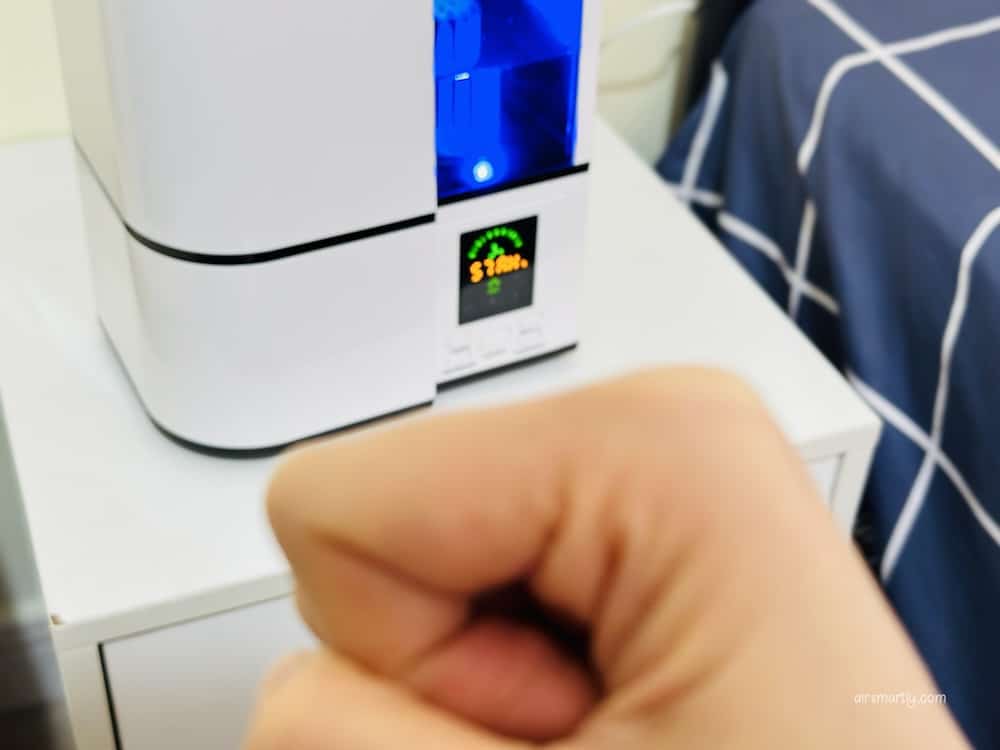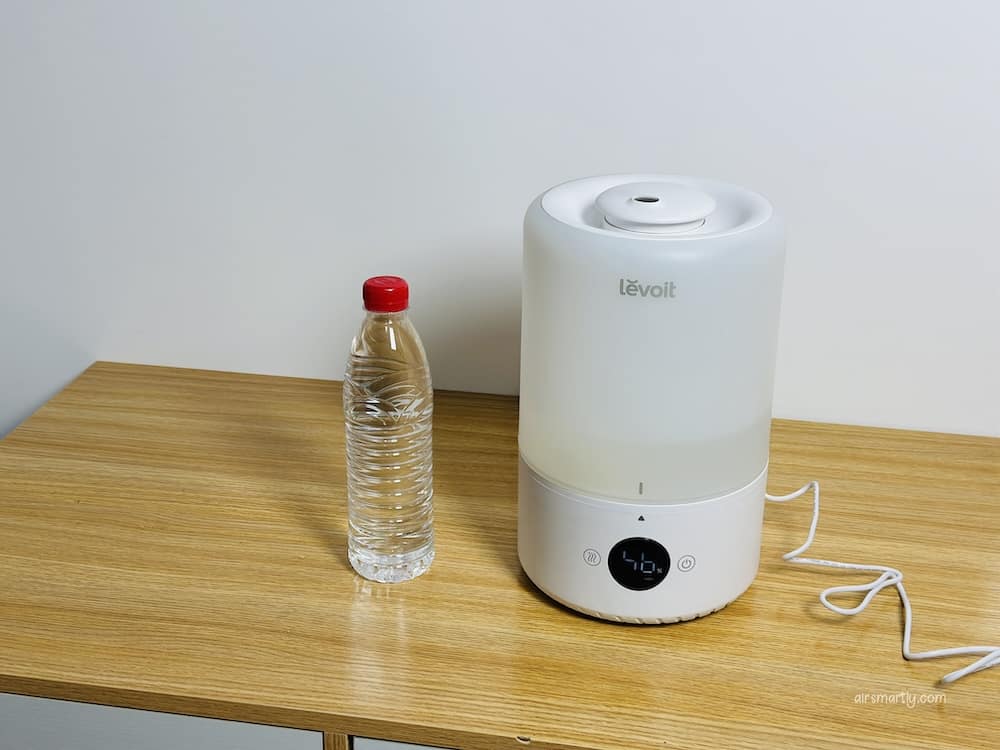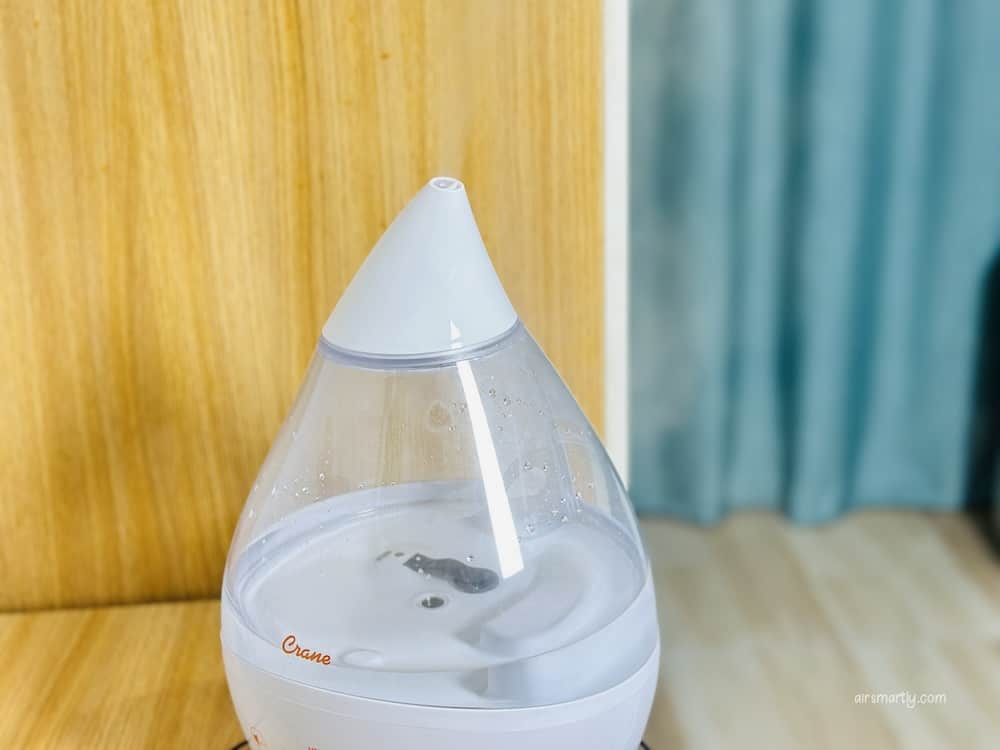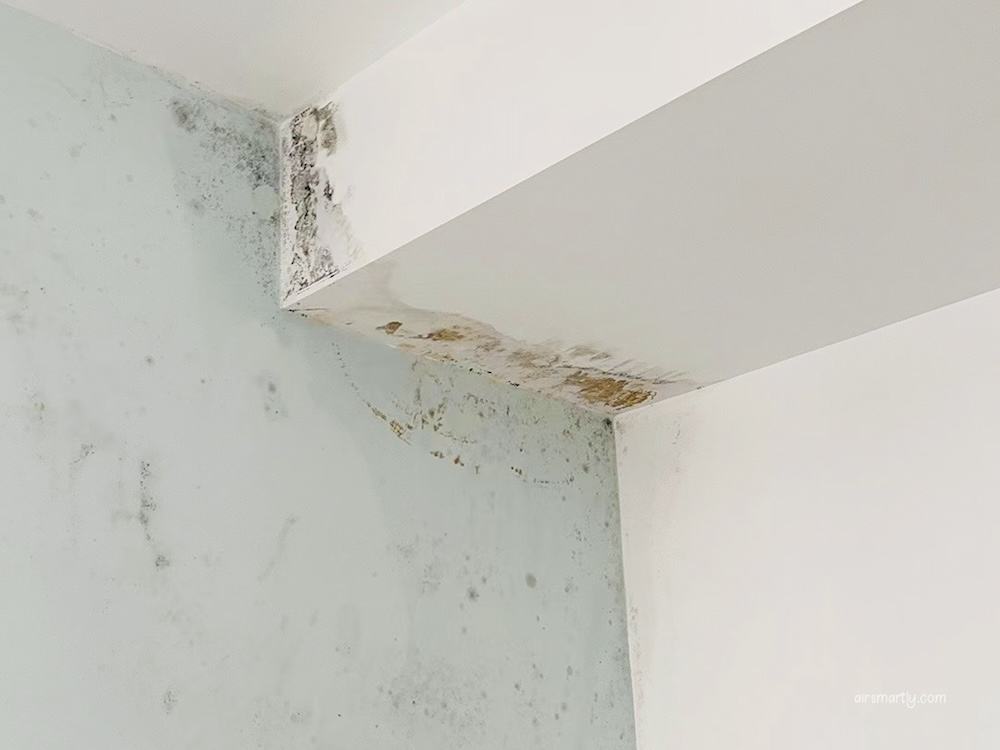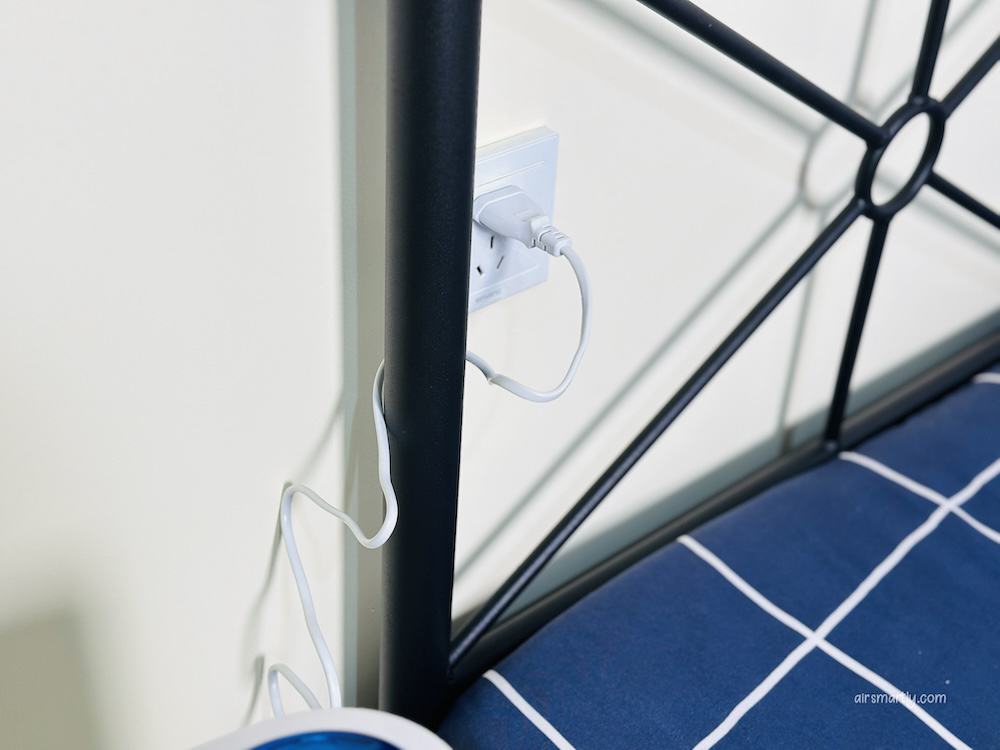Dealing with a persistent cough can be a very uncomfortable experience that can greatly impact one’s quality of life. Except for taking cough medicine, you may wonder if there is another way to alleviate it, such as using a humidifier.
This post will discuss if a humidifier can help with coughs and, if so, how to use it and what you should keep in mind.
Generally speaking, a humidifier can help ease coughs by moisturizing the airway, thinning the mucus, or inhibiting the spread of viruses. It does not apply to every type of cough, and you should keep it clean.
We have covered more details in the following paragraphs. We suggest you continue reading if you consider using your humidifier to remedy coughs.
Humidity and cough
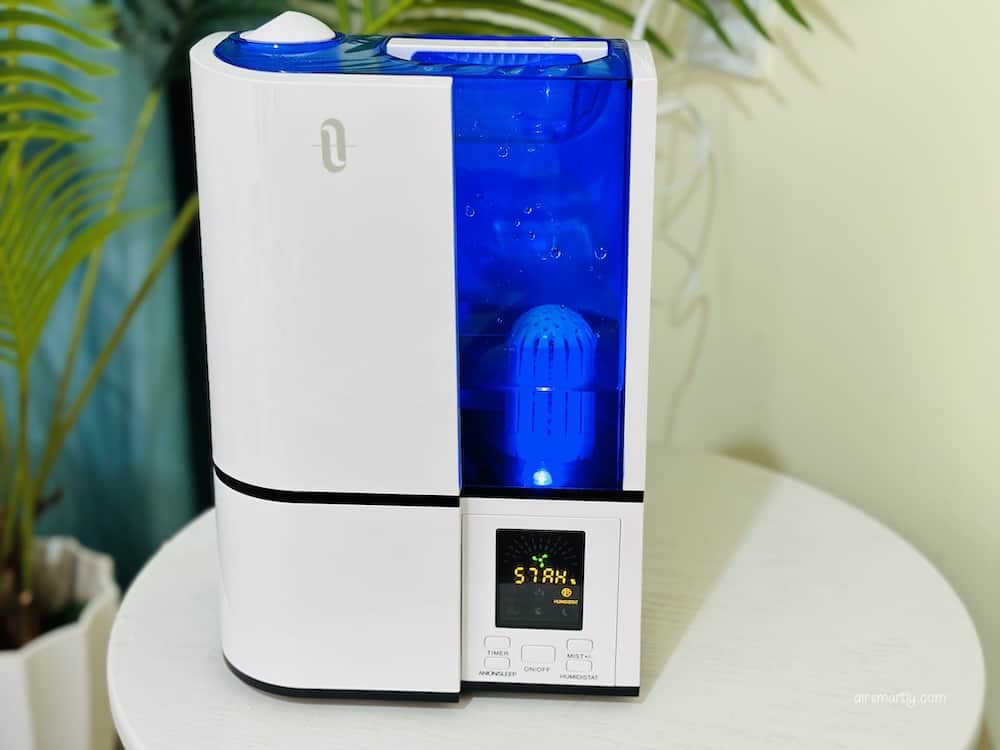
Maybe you don’t realize how vital humidity is in maintaining our wellness. The ideal humidity level for human beings falls between 30% to 50%
When the moisture level is too high, it can promote the growth of mold and dust mites, which are known to trigger asthma, allergies, and other lung diseases.
Low moisture levels can also wreak havoc on us. The dry air often contains more dust, pollen, viruses, and other impurities. It will also dry out our skin, throat, and nose lining, leading to more mucus secretion and malfunctioning of the immune system.
Therefore, a humidity level that is too low or too high can affect our health.
Cough is a reflex reaction designed to keep your airways clear. Because both moist air and dry air can irritate airways, controlling humidity levels is essential for preventing cough.
That is to say, depending on the indoor humidity level, you may need a humidifier or dehumidifier for cough.
How can humidifiers help reduce cough?
Because humidifiers can increase the water vapor in the air, they can directly change the humidity level in the space. Once the humidity level returns to the right level, the symptoms caused by the dry air will be relieved, including the cough, sore throat, or dry eyes.
When the moisturized air gets into our bodies, it can make the mucus easier to blow out, the cilia to work properly, and the tissue easier to repair. Even if the cough is not caused by dry air, it can also help you to breathe easier and sleep better.
In addition, it can also reduce the spread and growth of bacteria and viruses, reducing the possibility of infections and inflammation.
Because humidifiers only produce mist or steam, it is a natural cough remedy.
Which type of cough is not suitable for using a humidifier?
Humidifiers can help with both dry cough (unproductive cough) and wet cough (productive cough). However, if the cough is chronic and triggered by a long-term lung disease like asthma, COPD, or allergy, you should consult your doctor to decide if a humidifier is appropriate.
Which type of humidifier is the best for easing coughs?
Not every humidifier is made equal. If you don’t have a humidifier yet, you can narrow your options by looking at the following factors. Or you can check our recommendations for the best humidifiers for coughs directly.
Appropriate output
Usually, higher output means your humidifier can take less time to work. If you have a large room, you’d better choose one with an output larger than 200ml. However, if the output is too high for your space, it can worsen the cough by making the room too humid.
Built-in humidistat
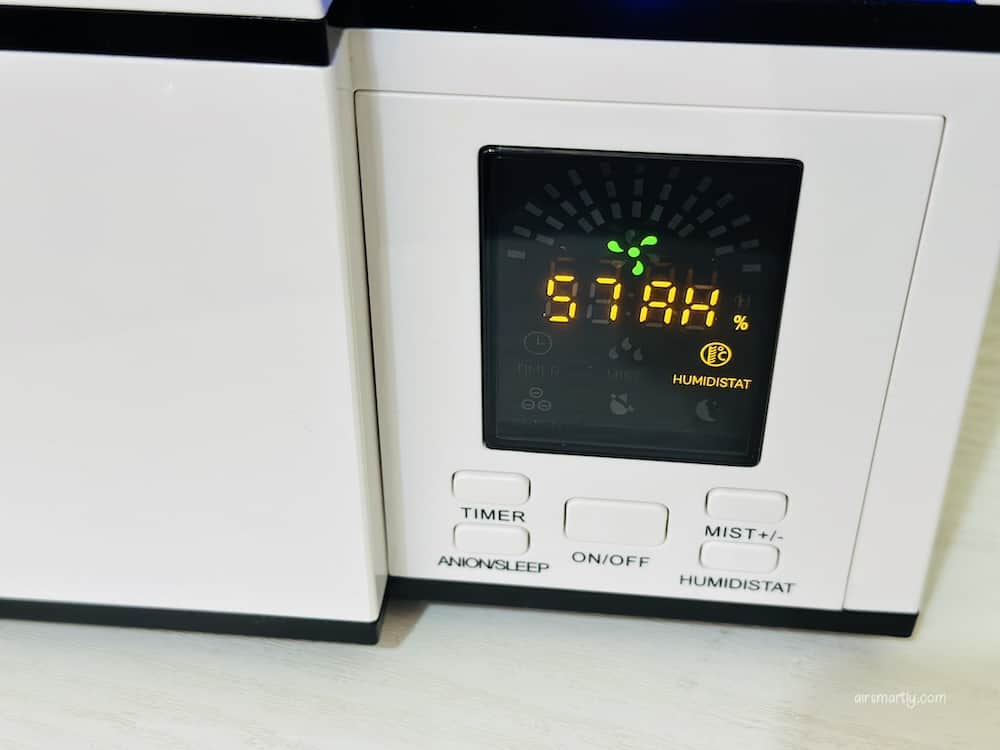
If you don’t bother to monitor the humidity through a hygrometer, you can purchase a humidifier with a humidistat.
In this way, your humidifier will shut off automatically once it reaches the set humidity and turn on again once the humidity drops.
Quiet
Coughs often become more severe at night, which can disrupt your sleep. In such situations, a noisy humidifier can exacerbate the problem and make it difficult to get the restful sleep you need.
Aromatherapy
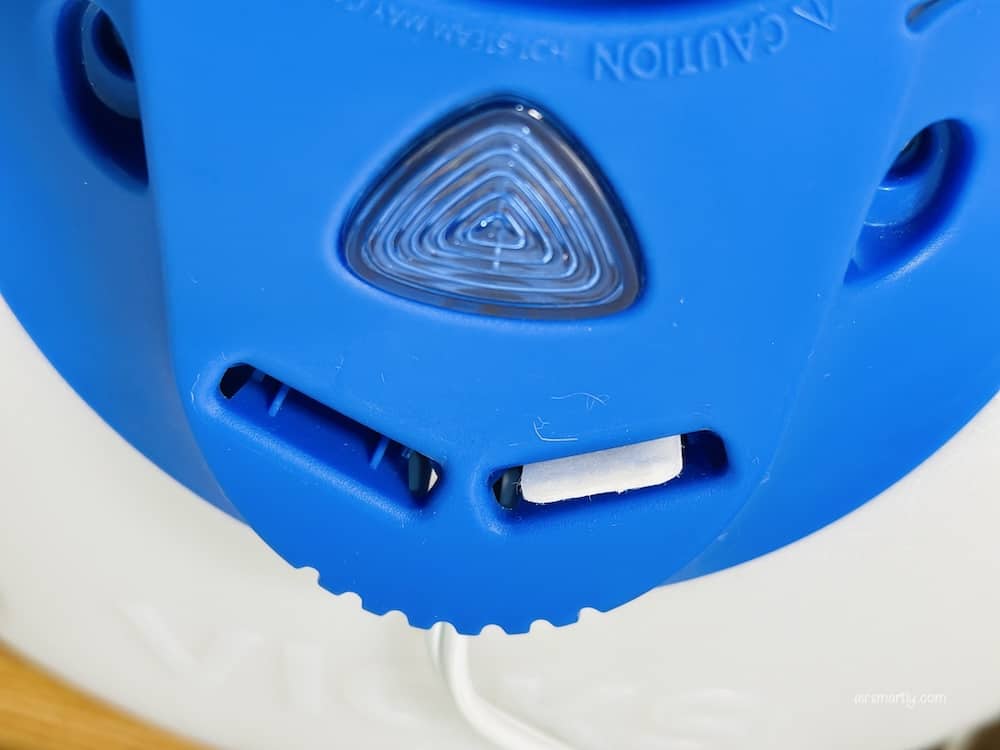
Some essential oils can assist in relieving coughs, loosening mucus, and defeating viral infections. Rather than running a diffuser separately, you can buy a humidifier with a diffusion feature to reap added benefits.
How to use a humidifier to remedy coughs effectively?
When using a humidifier for coughs, you should pay attention. After all, humidifiers could be a source of bacteria and mold and worsen the cough if left unattended.
Monitor the humidity level constantly
Again, to prevent any adverse effects, keep the humidity level between 30% and 50% while running a humidifier.
If your humidifier doesn’t have a built-in humidifier, you should monitor the humidity level continuously. Otherwise, dust mites and mold spores will thrive, worsening the cough eventually.
Clean it frequently
Standing water in the humidifier could boost the growth of bacteria and mold spores and then disperse them into the air. These microbes will hunt for the residence in your body, causing infections.
You should empty and clean the tank frequently. If your humidifier is filtered, you should replace the filter every month or more regularly.
Fill it with distilled water
Distilled water is free of minerals and other impurities, making it harder to become the breeding ground of microbes. Meanwhile, it will not form white dust, which may result in lung problems.
Use a cool mist humidifier for children
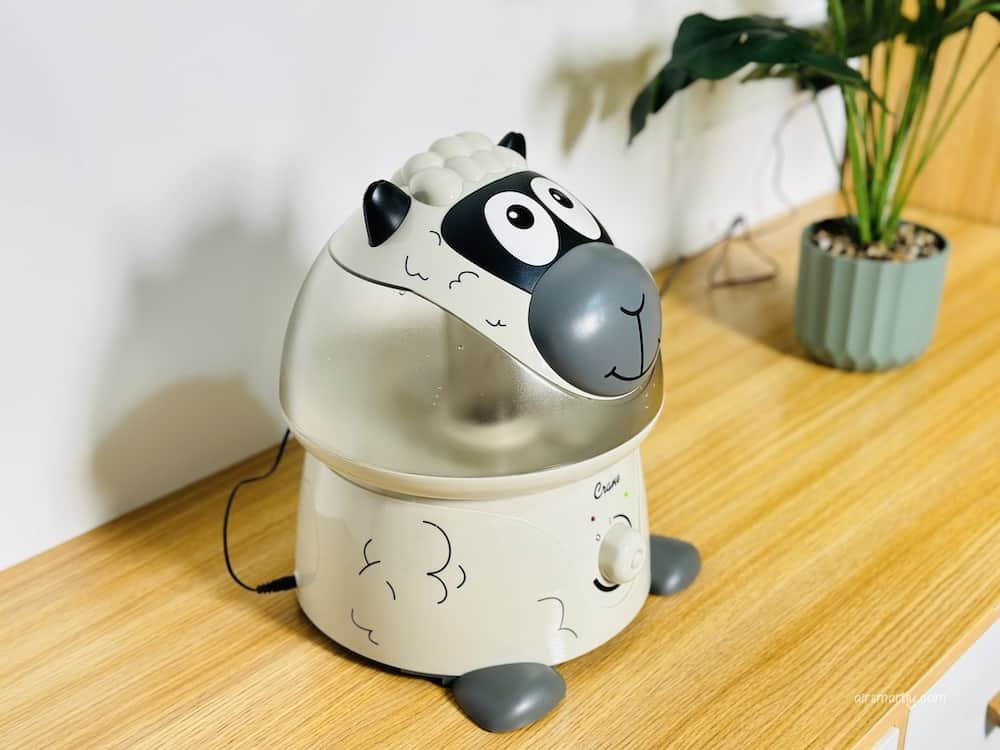
Many people prefer to use a warm mist humidifier, especially in winter.
While not enough evidence indicates whether a cool mist humidifier is better than a warm mist humidifier in relieving coughs, the hot water inside may lead to scalding.
Hence, you should use a cool mist humidifier for your children or place the warm mist humidifier somewhere they can’t reach.
In conclusion
A humidifier can help with coughs by moisturizing the respiratory tract, breaking up mucus, and reducing the spread of bacteria and viruses. It is a natural remedy, but you should ensure the water inside is clean.
However, a humidifier can’t replace cough medications, and you should always consult your doctor to get an appropriate treatment plan.

